10 conclusions from Milan-San Remo
Cavendish deserves Omega Pharma-QuickStep leadership at Gent-Wevelgem
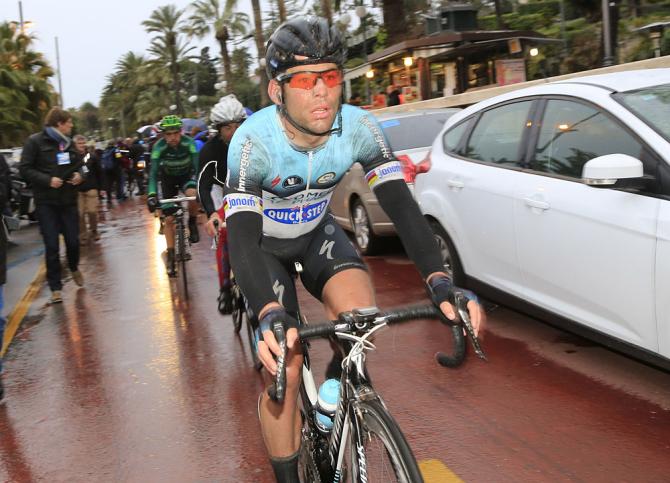
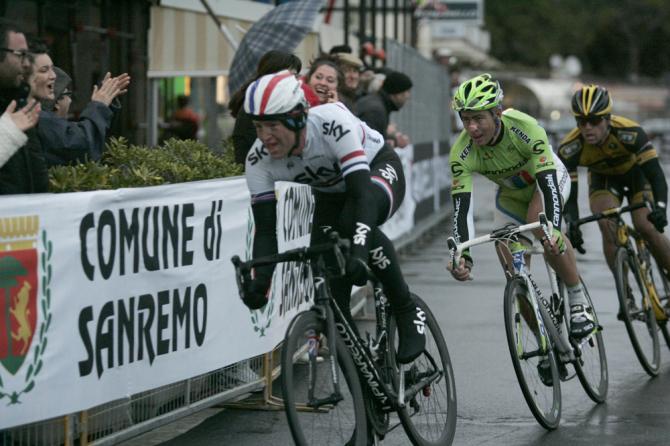
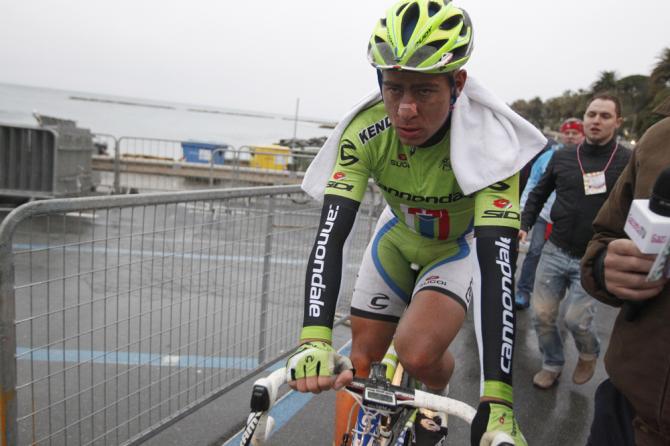
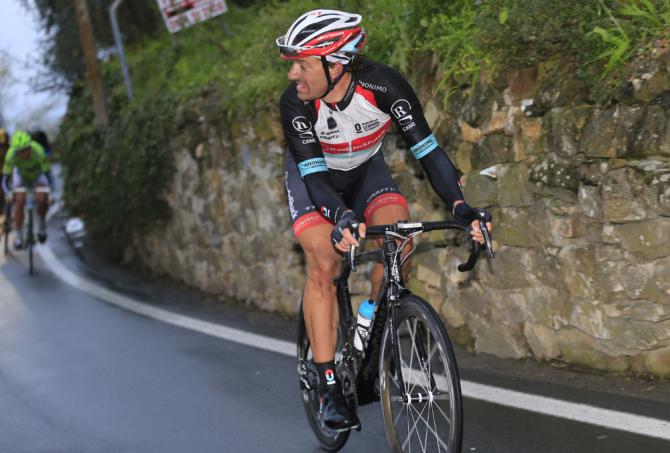
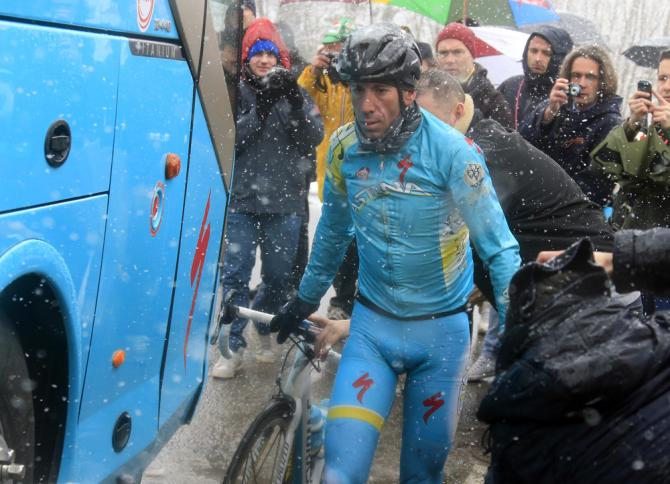
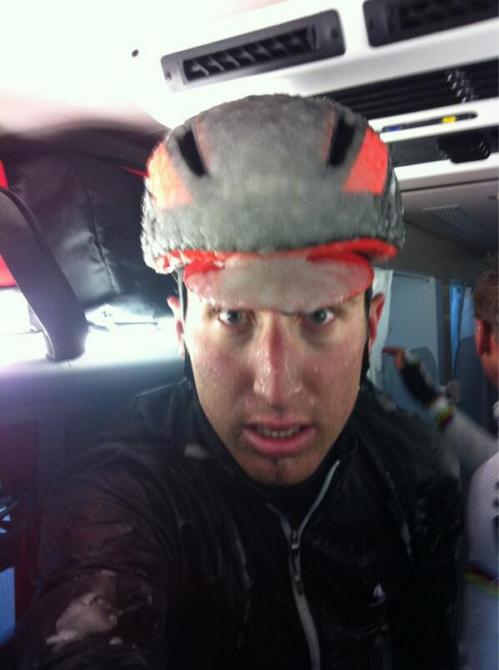
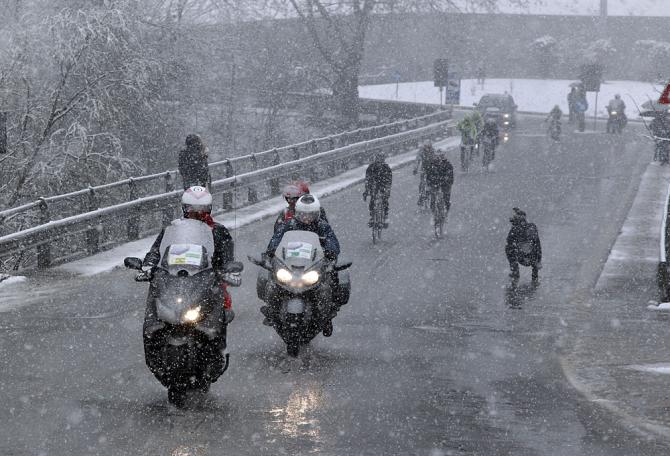
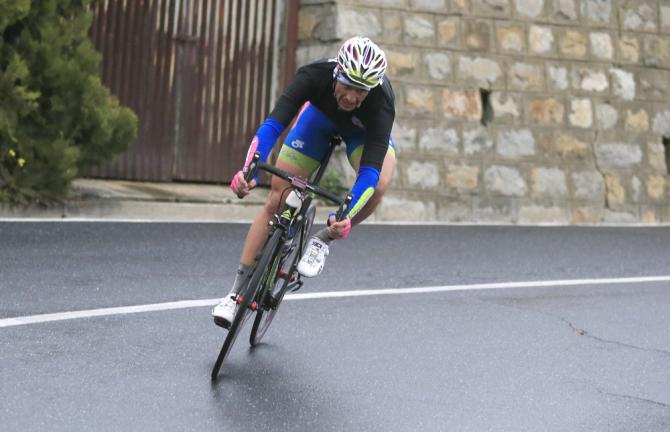
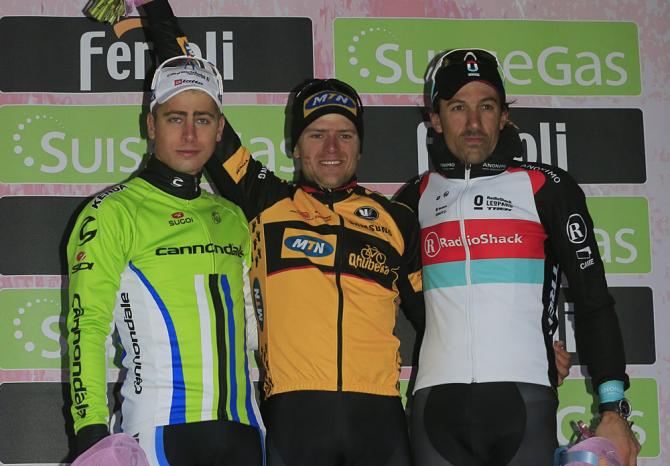
There was good news and bad news for Mark Cavendish as he sat aboard the Omega Pharma-QuickStep bus awaiting the re-start of Milan-San Remo. The good news was that the climb of Le Manie had been slashed from the route. The bad news was that Tom Boonen, Niki Terpstra and Stijn Vandenbergh had opted to abandon ship as they looked ahead to the cobbled classics. The Manxman opted to focus on the positive, however, and with just Sylvain Chavanel for company in the finale, he produced his best Milan-San Remo performance since winning the race in 2009.
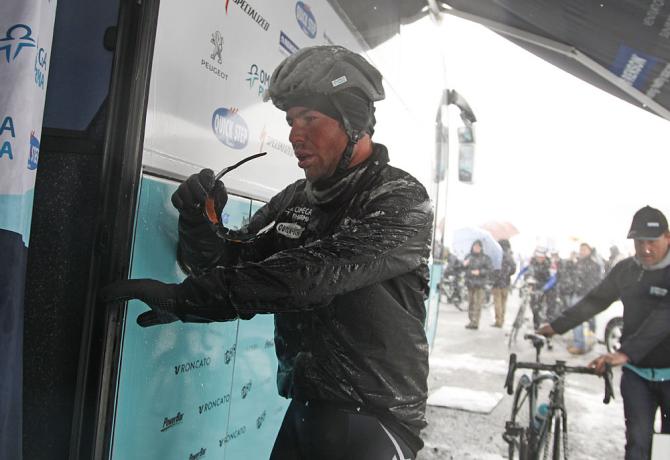
A more subtle approach from Cancellara?
For the previous two years, Fabian Cancellara led Milan-San Remo all the way down the Poggio, hoping simply to ride everybody off his wheel, but the RadioShack-Leopard rider raced with a little more restraint this time around. Stung, perhaps, by two seasons where the wins-to-spettacolo ratio had been askew, Cancellara accelerated sharply on the Poggio to bring the main contenders back into contention, but he was happy to force Peter Sagan to take up the initiative on the way down.
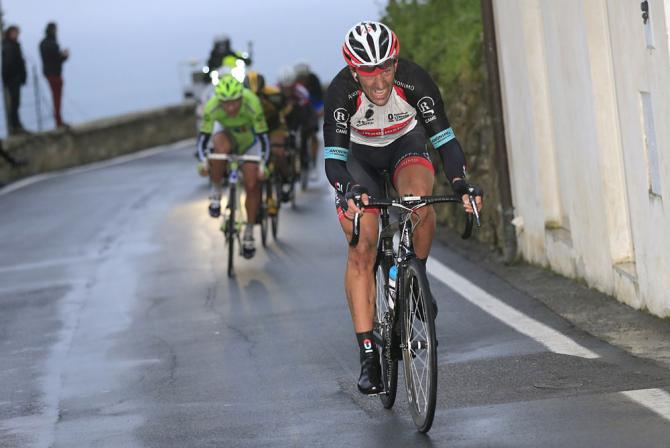
Sagan gets his timing wrong
As an aspiring writer in New Orleans, future Nobel laureate William Faulkner was issued a gentle warning to focus his efforts by his mentor Sherwood Anderson: “You’ve got too much talent. You can do it too easy, in too many different ways, but if you’re not careful, you’ll never write anything.”
At 23 years of age, Peter Sagan (Cannondale) has plenty of time to inscribe a hefty classics palmares but he missed a golden opportunity to sign off on his first classic win in San Remo. While the Slovak was correct to take the initiative on the way down the Poggio, he suffered from the sin of presumption in the closing kilometre.
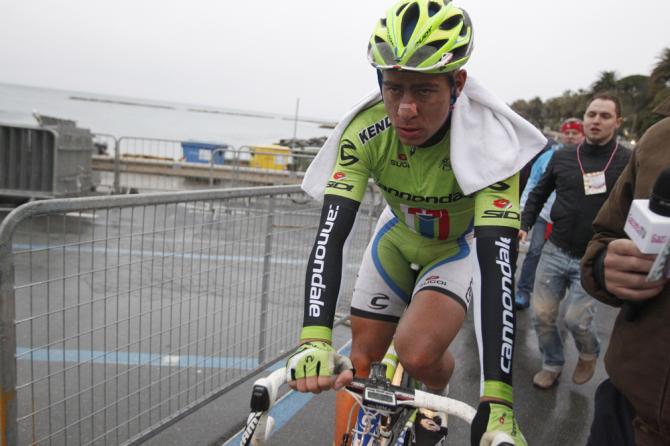
Pozzato in right place but off the pace
Get The Leadout Newsletter
The latest race content, interviews, features, reviews and expert buying guides, direct to your inbox!
Filippo Pozzato (Lampre-Merida) has given mixed signals so far in 2013. Victory at Trofeo Laigueglia was followed by an anonymous Omloop Het Nieuwsblad, while his second place finish at Roma Maxima was tempered by the fact that he had been dropped on the final climb.
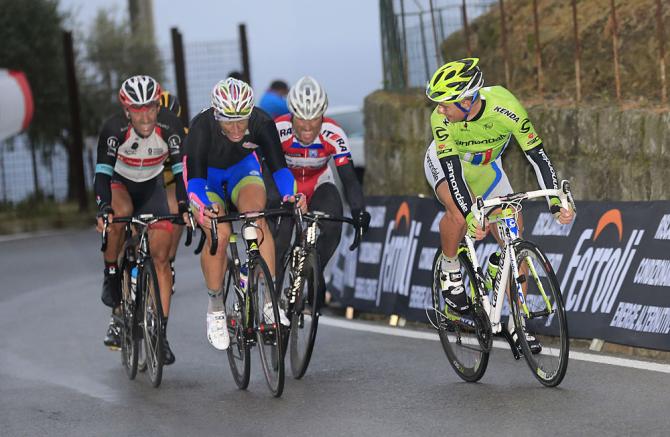
A falsified race?
Did the snow and route changes falsify this Milan-San Remo? While it’s hard to quibble with the quality of the winning break, there is no debating that the extreme weather and the lengthy stoppage radically altered the complexion of the race.
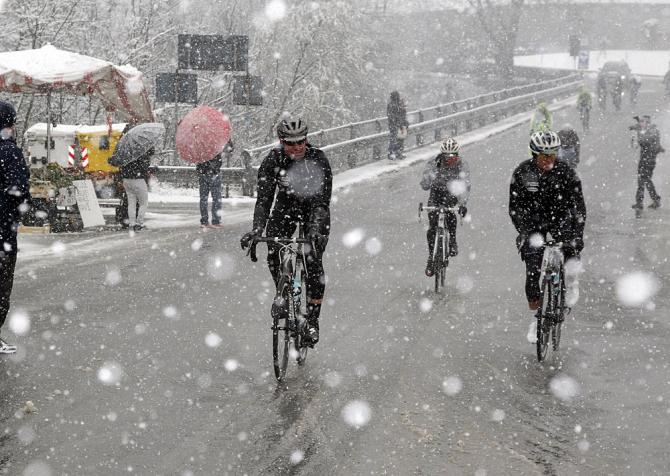
All hail Ciolek
Gerald Ciolek was rated a 100-1 outside chance for victory at Milan-San Remo but the soft-spoken German from Cologne always looked a winner, riding a tactically perfect final hour while the likes of Peter Sagan, Fabian Cancellara were unable to impose their tactics or fell into the trap of being over confident.
Ciolek is not driven by the natural aggression that is usually part of any sprinter's DNA. He doesn't trash talk about his rivals or irritate them with showboating when he wins a race. On the capi and Italian coast road, he rode his own race, kept his powder dry despite the rain and then produced a perfect, winning sprint.
Many had written Ciolek off as a big-sprint contender. He was a Under 23 world champion but had been forced to accept the often humiliating job of leadout man and domestique after being only a bit-part player in the sprints.
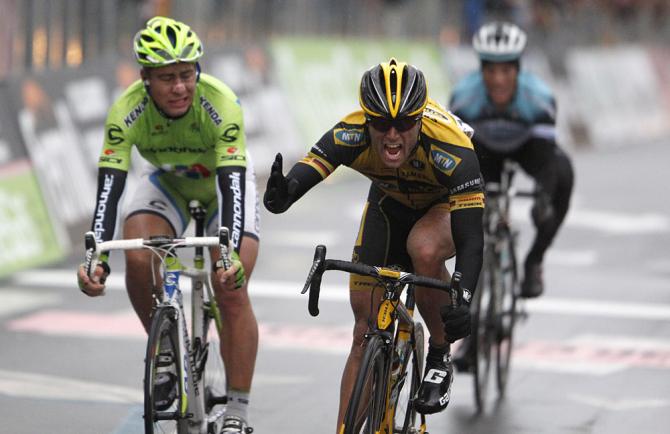
Safety first
The old Italian riders who watch Milan-San Remo from the roadside every spring told Marco Pastonesi in Monday's Gazzetta dello Sport that the race should not have been stopped because of the snow.
They claimed, with their old world bravado, and fading memories of the past, that they would have raced up the Turchino in the snow, attacked on the descent despite the freezing cold rain and fought all the way to San Remo for a chance of victory.
Fortunately race organiser RCS Sport no longer follow the 'show must go on mentality' created in the past and fueled by former race directors such as Vincenzo Torriani – who sent the 1988 Giro peloton over the Gavia in the snow. Instead rider safety is considered important.
The only criticism of RSC Sport that seems fair is their decision to suspend the race at Ovada after 120km of racing. By then the peloton had spent an hour riding under heavy snow, with many riders in tears because of the pain and some unable to hold their handlebars.
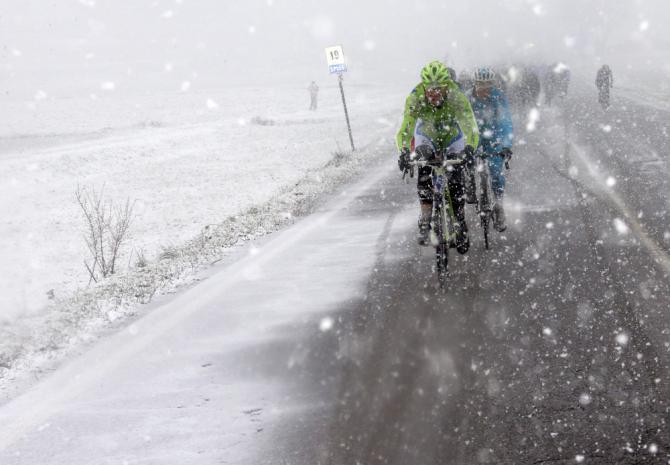
Phinney saves BMC's bacon
Taylor Phinney was not the designated team leader at BMC for Milan-San Remo. But after the race, Philippe Gilbert, Thor Hushovd and Greg Van Avermaet were forced to congratulate him on his late surge and seventh place and thank him for his effort, knowing that the young American had saved them from criticism.
The BMC team is packed with big-name, big-salary riders but they struggled to handle the terrible weather conditions and fell by the wayside or failed to perform as expected.
Only Phinney has the right fighting spirit to take on the extreme conditions and bravely to set off in pursuit of the six leaders on the descent of the Poggio.
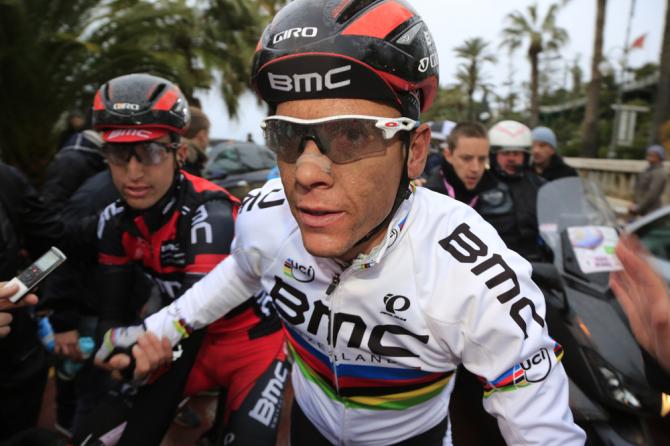
Super Stannard
Ian Stannard finished sixth in Milan-San Remo but the result explains little about his incredible performance. His day out front, on the attack with Sylvain Chavanel, his audacious surge on the Poggio and even his last do or die move in the final two kilometres showed his huge potential for when races become a battle between the hard men of the peloton.
While Edvald Boasson Hagen cracked in the cold and rain, and other Team Sky riders crashed and suffered, Stannard seemed to enjoy it more and more.
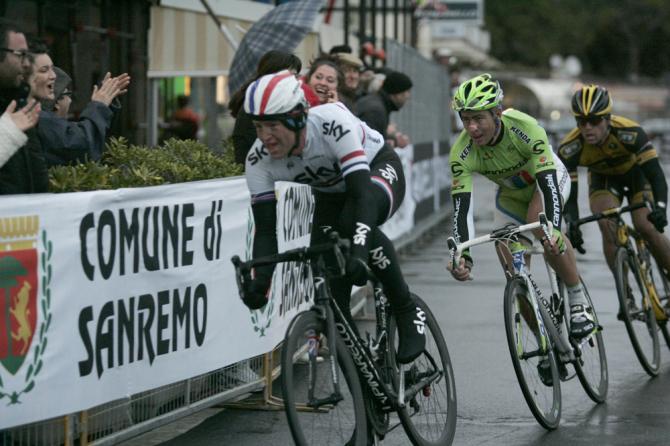
Cyclist are the hard men of sport, footballers are softies
Even with Milan-San Remo reduced from 298km to 246km due to the terrible weather conditions, the riders still spent more than five and a half hours in the saddle, racing and suffering.
Gerald Ciolek stopped the clock in 5:37:20, with the rest of the 135 finishers spread across a further 20 minutes. Russia's Vladimir Isaychev (Katusha) was the last to reach San Remo, 18:25 behind Ciolek.
Most of northern Italy and much of the weekend's sport schedule was hit by bad weather. Not everyone had the same courage as the cyclists and the organizational skills of RCS Sport. The football match between Sampdoria and Internazionale in Genoa was cancelled due to the bad weather.
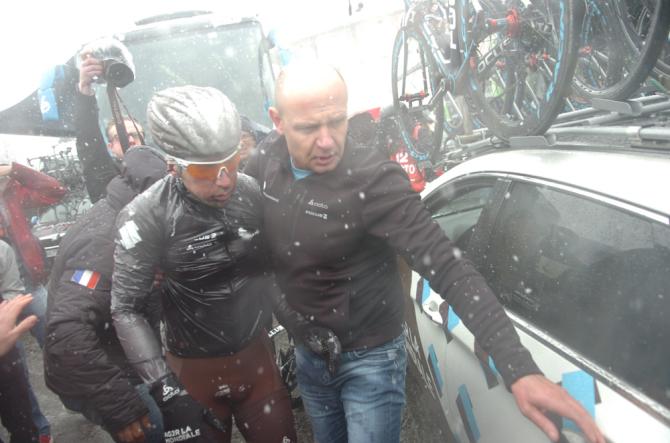

Stephen is one of the most experienced member of the Cyclingnews team, having reported on professional cycling since 1994. He has been Head of News at Cyclingnews since 2022, before which he held the position of European editor since 2012 and previously worked for Reuters, Shift Active Media, and CyclingWeekly, among other publications.